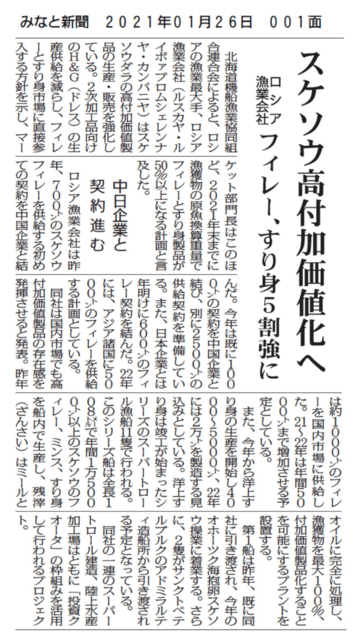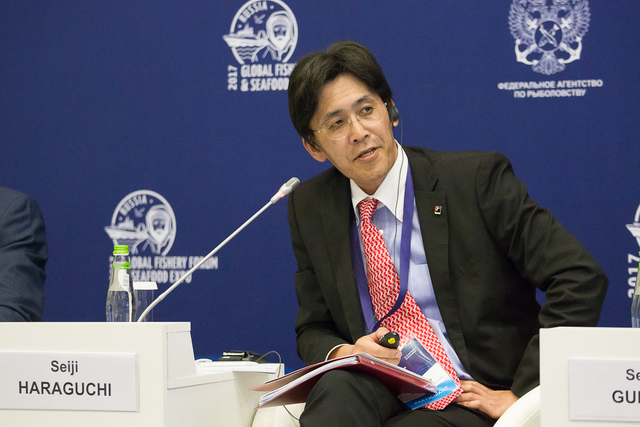
Trident Seafoods to close Alaska plant for three weeks after COVID-19 outbreak
Jan. 26, 2021 at 5:05 pm
Seattle-based Trident Seafoods is suspending operation at its Akutan facility just at the start of
major winter harvests for pollock — North America’s biggest single-species seafood harvest — as well as cod and crab. Here, pollock spawn in a NOAA tank.
Seattle-based Trident Seafoods is shutting down its largest Alaska seafood plant for three weeks after a COVID-19 outbreak, a difficult decision that points to a renewed assault by the coronavirus on the ranks of workers in a key part of the nation’s food-processing industry.
Trident is suspending operation at its Akutan facility just at the start of major winter harvests for pollock — North America’s biggest single-species seafood harvest — as well as cod and crab. At Akutan, some 700 employees have stopped working amid a new round of testing, and a fleet of boats that would normally be delivering their catch is now tied to docks.
“We know that COVID-19 is now on the site, and until we test everyone we won’t now how extensive it is,” said Stefanie Moreland, a Trident vice president. “This is the best way to contain the spread of the virus.”
Earlier this month, Unisea, another major processor based on the island of Unalaska, shut down due to an outbreak and is conducting mass testing of its workforce. The Seattle-based Ocean Peace, a factory trawler that harvests cod and other-bottom dwelling fish, also has an outbreak that has forced the vessel to leave the Unalaska port of Dutch Harbor and head to south-central Alaska to quarantine.
The outbreaks come at a time when North Pacific seafood industry officials — and their medical consultants — have been urging state public health officials to make vaccines available to processing workers as well as fishing crews. They say they have made extensive efforts through quarantines, masking and social distancing to curb the virus. But there is an urgent need to provide vaccine protection for these workers, many of whom are minorities, may live shoreside in multigenerational families and are put at high risk if they should become sick with the virus on ships or remote plants.
“We have done everything we can. But there is so much community spread out there,” said Dr. Ann Jarris, M.D., chief executive of Discovery Health, who has consulted for Trident.
Jarris said state officials in Alaska and Washington are trying hard to support the seafood industry within the constraints they are working under.
Trident’s Moreland said that the Akutan facility, which is operated as a closed campus with bunkhouse accommodations, currently has some 700 employees. The plant is scheduled to swell to 1,400 workers to process the winter harvest, but Trident currently is holding off on sending additional workers there.
The outbreak was detected earlier this month when four employees, who were all roommates, tested positive. They had all undergone a 14-day quarantine and tested negative for the virus before returning to their jobs in Akutan.
“Our review of protocols has so far shown that our robust quarantine protocols have been closely followed and successful,” said Trident CEO Joe Bundrant. “We have not determined how the virus entered Akutan but are investigating all potential gaps. This serious action to stop operations is necessary to allow us to do everything we can to provide a safe work environment and resume full operations as quickly as possible.”



















